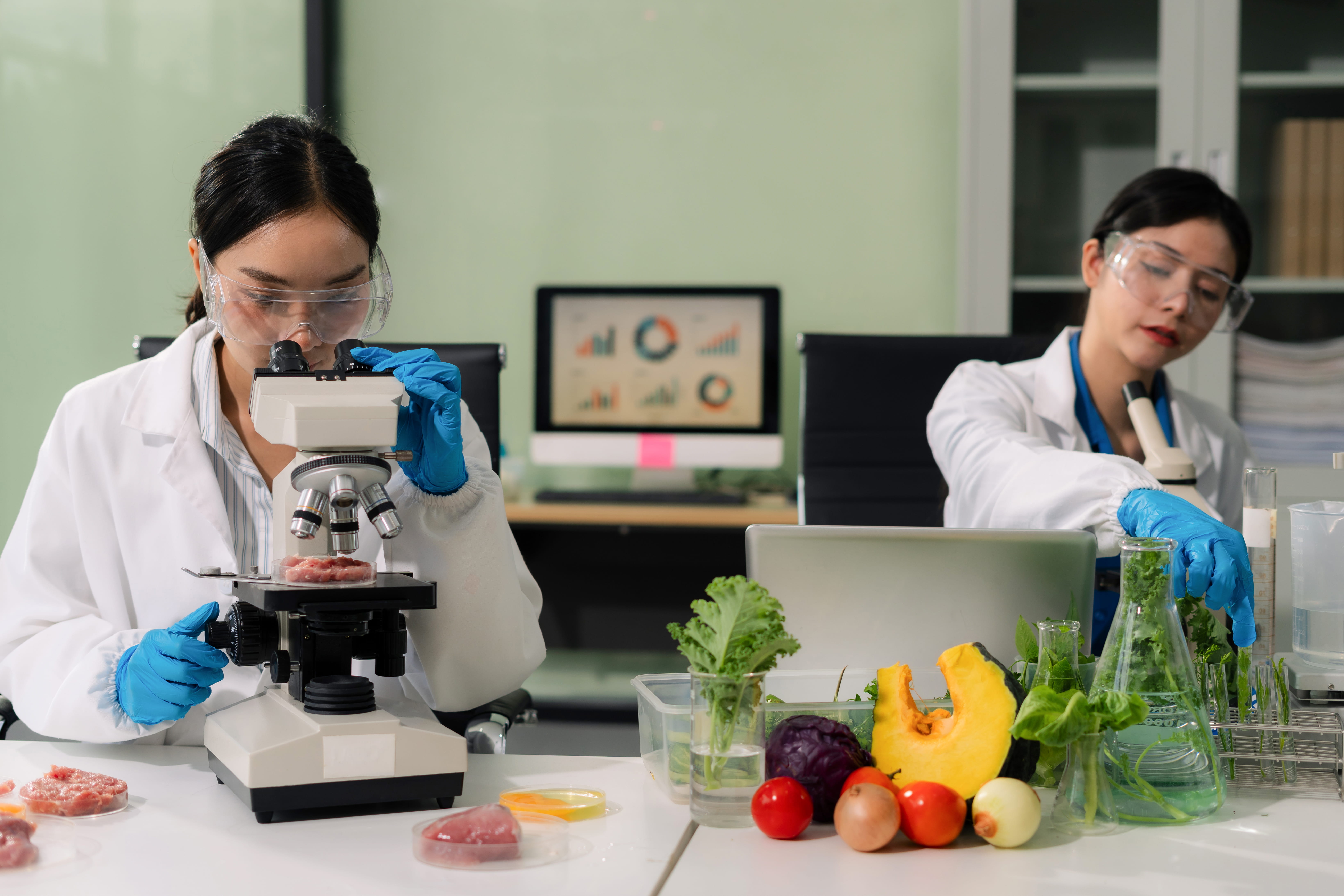Last Updated on May 1, 2025 by Admin
One of the fastest-growing career sectors in the world today is food processing, offering a multitude of professional career options for people with requisite skills and knowledge. The increase in demand for food products has resulted in a phenomenal growth in processed food and with it in the requirement of competent manpower. Self-paced learning has now surfaced as a powerful and convenient way for learners to gain knowledge and certification in food processing that does not disrupt their working schedules.
Career in the Food Industry
The food industry is a dynamic and ever-growing sector that offers diverse career opportunities, from food production and quality control to research and development. With advancements in food technology and increasing global demand, professionals with the right skills can build rewarding careers in areas such as food safety, packaging, and innovation.
Fields Involving Food Processing
The food sector has a variety of careers to offer ranging from labelling inspectors to production managers to research scientists. You can specialize in quality assurance, inventory management, and even logistics. Some of the most common job titles are as follows:
- Food Technologist
- Quality Assurance Manager
- Production Supervisor
- Food Safety Inspector
- Packaging Specialist
- Research and Development Scientist
What Makes Food Processing a Smart Career Choice?
The combination of stability in the food processing industry, competitive salaries, and career advancement is extremely appealing. Due to the ever-growing need for specialists within the industry, practitioners with recognized training and certifications are always in high demand. Self-paced learning empowers professionals to improve their qualifications, while still being engaged in their current jobs.
Changes in Food Industry
Take a look at some of the factors that constituted the changes in the food industry.
1. Growth of the Global Market
The world over, the demand for processed food is rising on an unprecedented scale due to the increased need for convenience foods, technological growth, and changes in consumer wants. The introduction of E-commerce is fuelling the growth of the market further due to easy access to ready-to-eat meals and organic healthy food products.
2. Effect of Technology
The food processing industry is becoming more efficient and safer because of the advances in automation, artificial intelligence, and IoT. People proficient in these technologies have never been more in demand, with headways being made in the industry offering various promising career paths.
3. Sustainability and New Ideas
In focusing on sustainability, corporations are channelling funds toward the development of eco-friendly packaging, waste reduction, and the implementation of other energy-efficient production techniques. With the help of professional self-paced courses, one can learn to understand a company’s position within these trends and help them remain competitive.
Also read: Skill Development in Food Processing Industry
Core Competencies in Food Processing
1. Technical and Operational Competencies
Competence in the food processing sector entails familiarity with different methods, machines, their operation, and relevant occupational health and safety measures. Notable skills are:
- Hygiene and sanitary measures
- Check controls
- Operations of machine units
- Packaging and marking
2. Legal Compliance and Food Security
Achieving and maintaining quality standards in sub-branches of the food industry requires knowledge of food safety regulations, laws, and rules. Courses on HACCP (Hazard Analysis and Critical Control Points), FDA regulations, and ISO standards provide value for practitioners who need to be compliant and maintain quality standards as well.
3. Decision Making and Analytical Skills
Problem-solving abilities are important in food processing. Problems range from equipment malfunctioning to products not being uniform in size and quality. One way of learning these is through remote learning schemes which use practical examples and problem-based learning approaches.
4. Interpersonal Skills and Management Skills
Participating in and leading group activities for effective communication is very important in one’s professional development. In remote mode of learning, courses on management are offered which makes it easier for employees to become supervisors and managers in the business.
Self-Paced Learning Opportunities in the Food Processing Sector
- Convenience and Flexibility: Placing learner control over the pacing of their learning process is quite beneficial for full-time workers and students. The aspect of not having to travel to attend classes is always a plus with online courses. The high-quality resources can be accessed from anywhere at any time.
- Affordable Learning: Self-paced courses are more affordable than traditional schooling, so they don’t have to break the bank. Many platforms offer courses at no charge or at a very low cost so they can gain valuable knowledge without going into debt.
- Support from Industry Experts: Industry expert insights, case studies, and self-paced learning programs also include practical application in the real world enabling learners to obtain knowledge from real practitioners, and improving their understanding of food processing techniques and trends.
- Possessing Advanced Training to Further A Career: Acquiring a certificate through self-paced courses enhances a resume and can help with obtaining a new job. Many employers prefer hiring candidates with additional qualifications, especially in specialized fields like food safety, quality assurance, and process optimization.
What Steps Do You Need to Take to Self-Paced Learning?
Choose the Right Platform
These platforms are ideal for food processing courses:
- Coursera
- Udemy
- LinkedIn Learning
- edX
- Food Safety Certification Boards
Identify Your Learning Goals
Establish your career goals before commencing any programs. Do you want to learn the basics, develop certain skills, or earn a reputable certification? Enrol in programs that help you achieve your goals.
Stay Consistent and Motivated
You set the pace, but you must ensure you are studious. Make time to study when you can, fulfil your responsibilities, and participate in as many activities as you can to learn more.
Practice Learning Techniques
Use the knowledge you acquire from your classes towards projects, internships, or even on-the-job training. Being exposed to real situations is the best way of acquiring skills in food processing techniques.
Also Read: An Introduction to Skill Development and Its Importance
Conclusion
Food processing has witnessed unprecedented growth and will keep expanding, thus creating endless career opportunities for educated professionals. To stay relevant and progress in your career, self-paced learning is one of the most effective strategies to adopt in order to develop necessary skills. Self-paced learning can be the best solution to provide access to an affordable and quality education to help you excel in the food processing industry. What are you waiting for? Start your self-paced learning initiatives right now and take charge of your career progression!













